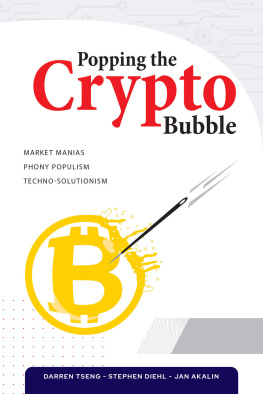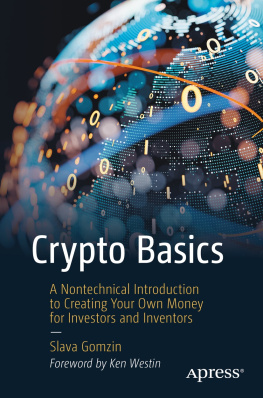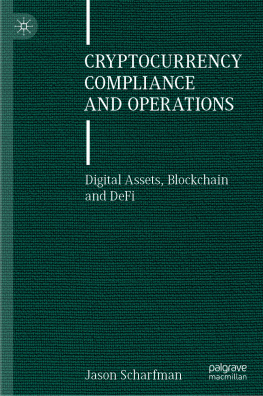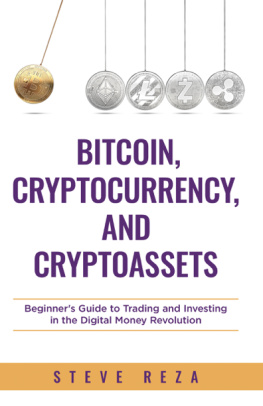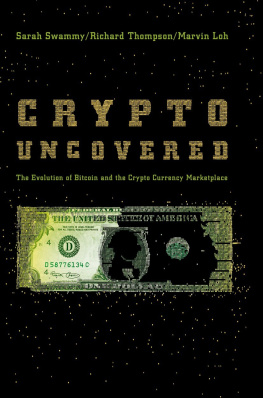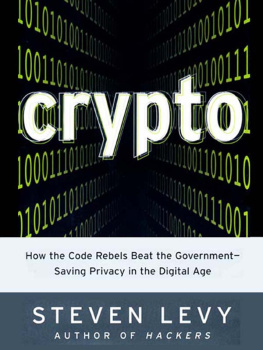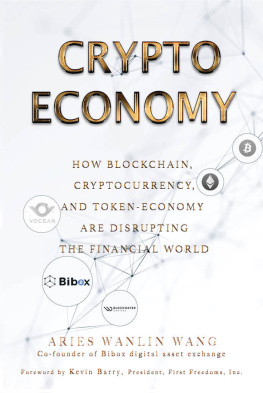Stephen Diehl - Popping the Crypto Bubble
Here you can read online Stephen Diehl - Popping the Crypto Bubble full text of the book (entire story) in english for free. Download pdf and epub, get meaning, cover and reviews about this ebook. year: 2022, publisher: Consilience Publishing, genre: Romance novel. Description of the work, (preface) as well as reviews are available. Best literature library LitArk.com created for fans of good reading and offers a wide selection of genres:
Romance novel
Science fiction
Adventure
Detective
Science
History
Home and family
Prose
Art
Politics
Computer
Non-fiction
Religion
Business
Children
Humor
Choose a favorite category and find really read worthwhile books. Enjoy immersion in the world of imagination, feel the emotions of the characters or learn something new for yourself, make an fascinating discovery.
- Book:Popping the Crypto Bubble
- Author:
- Publisher:Consilience Publishing
- Genre:
- Year:2022
- Rating:4 / 5
- Favourites:Add to favourites
- Your mark:
Popping the Crypto Bubble: summary, description and annotation
We offer to read an annotation, description, summary or preface (depends on what the author of the book "Popping the Crypto Bubble" wrote himself). If you haven't found the necessary information about the book — write in the comments, we will try to find it.
The story of cryptocurrency is a history of the modern world reflected in technology. It is based on the different narratives that have shaped the economic and political reality of a world spinning out of control. It is also the story of a financial revolution that carries the seeds of its own destruction. Once intended as a peer-to-peer medium of payment, crypto has today morphed almost exclusively into a speculative investment asset. How can we decode crypto, learn from its mistakes, and predict what the future holds for this new currency? In Popping the Crypto Bubble, we uncover the truth about the technology behind cryptocurrency, its political ideations and the narratives that drive the biggest economic bubble in the history of mankind.
Contents
Introduction
The History of Crypto
The Cypherpunk Era
The Grifter Era
Historical Market Manias
South Sea Bubble of 1720
Mississippi Bubble of 1720
Railway Mania of the 1840s
Wildcat Banking of the 1800s
The Market Crash of 1929
Albanian Pyramid Schemes of the 1990s
Enron Scandal (1985 - 2007)
Beanie Babies (1995 - 2000)
The Dot-com Bubble (1995 - 2001)
The Subprime Mortgage Crisis (2003 - 2008)
Venture Capital Bubble (2010 - Present)
The Crypto Bubble (2016 - Present)
Economic Problems
Failure as Money
Failure as an Investment
Technical Problems
Scalability
Privacy
Security
Compliance
Valuation Problems
Asset Classification
The Theory of the Greater Fool
Environmental Problems
Wasteful Mining
Environmental Horrors
Cryptocurrency Culture
Cryptoanarchism
Technolibertarianism
Austrian Economic
Financial Nihilism
Ethical Problems
Selling Snake Oil
Illicit Activity
The Unbanked
MMM Ponzi Scheme
The Cult of Crypto
The Golden Calf
True Believers
Casino Capitalism
The Nature of Capitalism
LIBOR-cube Swaps
Crypto Exchanges
Neo-Bucket Shops
Flavors of Market Manipulation
Digital Gold
Fools Gold
Not an Inflation Hedge
Smart Contracts
Smart Contracts are not Contracts
Smart Contracts are not Smart
Blockchainism
The Pseudoscience of Trust Alchemy
The Blockchain Meme
Frauds & Scams
Fraud Triangle
Ponzi Schemes
Pump and Dumps
Giveaway Scams
Distributed Control Frauds
Web3
NFTs
The Reproducibility Problem
The Duplication Problem
The Plagiarism Problem
The Multiple Chain Problem
The Link Rot Problem
The Tinkerbell Effect
Market Manipulation
Play to Earn Games
DAOs
DeFi
The Metaverse
Stablecoins
The Idea of Stablecoins
Central Bank Digital Currencies
Crypto Journalism
Checkbook Journalism
Disclosures
Initial Coin Offerings
Crazy Coins
Celebrity Endorsements
Court Cases
Tokens As Illegal Securities
Ransomware
Cryptos Killer App
The Oncoming Storm
Financial Populism 215
Occupy Wall Street
WallStreetBets and Bitcoin
Financial Nihilism
Alienation
Everything is a Ponzi
Regulation
Shadow Equity & Securities Fraud
Industry Lobbying Efforts
A Framework for Discussion
Regulatory Approach
Complete Ban
Conclusion
The book will give you a comprehensive understanding of the history of blockchain technology, underlying technicalities of cryptocurrencies like bitcoin, the fundamentals of bitcoin mining and bitcoin miner impact on the environment. This is not an investment book; it is a financial history book that will give you the perspective to prove that the crypto world is not black magic.
Stephen Diehl: author's other books
Who wrote Popping the Crypto Bubble? Find out the surname, the name of the author of the book and a list of all author's works by series.

